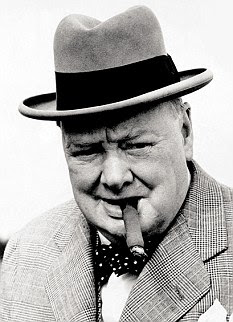
Today in Fatima, Portugal, His Holiness, Pope Benedict XVI consecrated the priests of the world to Our Blessed Mother. Here is the prayer he used:
Immaculate Mother,
in this place of grace,
called together by the love of your Son Jesus
the Eternal High Priest, we,
sons in the Son and his priests,
consecrate ourselves to your maternal Heart,
in order to carry out faithfully the Father’s Will.
We are mindful that, without Jesus,
we can do nothing good (cf. Jn 15:5)
and that only through him, with him and in him,
will we be instruments of salvation
for the world.
Bride of the Holy Spirit,
obtain for us the inestimable gift
of transformation in Christ.
Through the same power of the Spirit that
overshadowed you,
making you the Mother of the Saviour,
help us to bring Christ your Son
to birth in ourselves too.
May the Church
be thus renewed by priests who are holy,
priests transfigured by the grace of him
who makes all things new.
Mother of Mercy,
it was your Son Jesus who called us
to become like him:
light of the world and salt of the earth
(cf. Mt 5:13-14).
Help us,
through your powerful intercession,
never to fall short of this sublime vocation,
nor to give way to our selfishness,
to the allurements of the world
and to the wiles of the Evil One.
Preserve us with your purity,
guard us with your humility
and enfold us with your maternal love
that is reflected in so many souls
consecrated to you,
who have become for us
true spiritual mothers.
Mother of the Church,
we priests want to be pastors
who do not feed themselves
but rather give themselves to God for their brethren,
finding their happiness in this.
Not only with words, but with our lives,
we want to repeat humbly,
day after day,
Our “here I am”.
Guided by you,
we want to be Apostles
of Divine Mercy,
glad to celebrate every day
the Holy Sacrifice of the Altar
and to offer to those who request it
the sacrament of Reconciliation.
Advocate and Mediatrix of grace,
you who are fully immersed
in the one universal mediation of Christ,
invoke upon us, from God,
a heart completely renewed
that loves God with all its strength
and serves mankind as you did.
Repeat to the Lord
your efficacious word:
“They have no wine” (Jn 2:3),
so that the Father and the Son will send upon us
a new outpouring of
the Holy Spirit.
Full of wonder and gratitude
at your continuing presence in our midst,
in the name of all priests
I too want to cry out:
“Why is this granted me,
that the mother of my Lord should come to me?” (Lk 1:43).
Our Mother for all time,
do not tire of “visiting us”,
consoling us, sustaining us.
Come to our aid
and deliver us from every danger
that threatens us.
With this act of entrustment and consecration,
we wish to welcome you
more deeply, more radically,
for ever and totally
into our human and priestly lives.
Let your presence cause new blooms to burst forth
in the desert of our loneliness,
let it cause the sun to shine on our darkness,
let it restore calm after the tempest,
so that all mankind shall see the salvation
of the Lord,
who has the name and the face of Jesus,
who is reflected in our hearts,
for ever united to yours!
Amen!



























 Maybe if this kind of traffic keeps up I will feel more obligated to post more regularly...
Maybe if this kind of traffic keeps up I will feel more obligated to post more regularly... ave seen me, you know I also like to eat). Tonight I am hosting a brother priest and a transitional deacon for dinner and so a good part of today is being spent in the kitchen.
ave seen me, you know I also like to eat). Tonight I am hosting a brother priest and a transitional deacon for dinner and so a good part of today is being spent in the kitchen.

 Into the oven it goes:
Into the oven it goes:









